Top 10 Real Estate Investment Strategies

Property is a cornerstone of a successful business portfolio. It is a proven and tested money-generation method that has been growing over the years.
Real estate is for long-term investors, as some properties need years to yield substantial returns and become profitable. Moreover, you most likely need significant capital to enter this business.
So, how do you start? And what are the best real estate investment strategies? Let’s discover.
Key Takeaways
- Real estate offers lucrative opportunities with long-term returns and stable payouts.
- Property investors can invest in commercial or residential spaces to generate passive income and ensure long-term profitability.
- Buying houses to flip and rent/sell them is a popular approach to capitalise on the increasing real estate appreciation.
- REITs are famous avenues for investors to own shares in corporations that own and manage properties.
Understanding Real Estate Investing
Real estate investing refers to owning and utilising property as an income-generation tool using different business models. Similar to financial markets, where various asset classes and instruments are traded to make money, land, houses, and commercial spaces are bought and sold to grow wealth.
Investors can buy pre-built or ready properties and implement various strategies to grow their value and resell them at higher prices.
Real estate is known as an asset that always appreciates, making it a perfect way to generate primary or secondary income. It involves buying a property, improving it (also known as flipping it), then renting it out or selling it and gaining the price difference of the improved property.
Real Estate Market Insight
The real estate market is growing constantly, and the global property market size was estimated at $3.9 trillion in 2023, which is expected to grow at a 5.5% CAGR until 2034. Most of these returns originate from rentals comprising more than half of the market size.

Asia-Pacific contributed the most to this expansion, with a market size of over $1.5 trillion in 2023. This region is expected to keep its growth with a CAGR of 5.8% until 2034, which is just under $3 trillion.
Many factors contribute to this regional dominance, such as the rising personal property ownership trend in China and the increasing relocation and tourism in developing economies like Vietnam, Indonesia and the Philippines.

Real Estate vs Financial Markets
Investors often compare real estate and financial markets when looking for ways to grow their wealth. Investing in equities, currencies, and commodities is prone to speculation and numerous other factors. Stock investors tend to closely watch their investments to see the fluctuating share price and market conditions.
On the other hand, the property market is more stable with constant upward growth. This does not mean that property prices never decline, but there are more extraordinary factors that cause property to devalue.
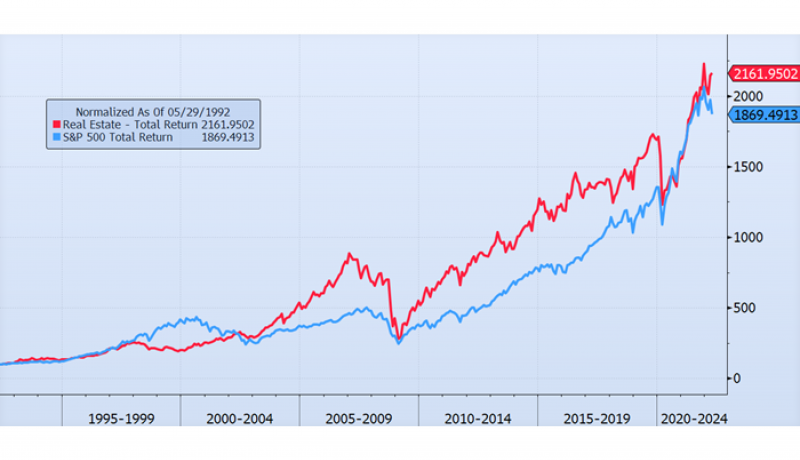
Economic recession, poor maintenance and high crime rates contribute to lowering the property market. However, more speculative and factual factors affect the financial securities market.
Additionally, standard financial instruments provide short-term returns, given the high average daily volatility of cryptocurrencies, stocks and the Forex market. In comparison, estate investment is long-term, focusing on the returns in the coming 5-15 years.
Types of Real Estate Investment Strategies
As much as straightforward property investment is, there are various ways to invest in properties. The development of brokerage platforms, rising demands and dynamic changes in global household spaces contributed to this growth.
Commercial vs Residential
Commercial spaces are office buildings, warehouses, showrooms, retail stores and other properties designed for business use. They have ample square footage and require a significant initial investment to begin with.
Residential spaces are apartments, flats, housing units and duplexes designed for households and families. This option is more accessible and has more affordable financial requirements.
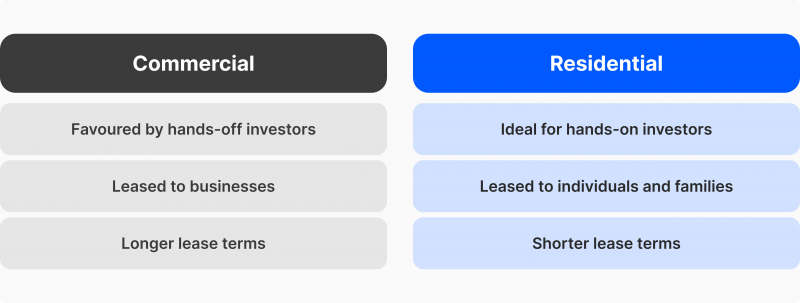
Investing in commercial property brings higher returns because they are larger in space, and tenants usually engage in multi-year lease contracts, leading to a more consistent income stream.
On the other hand, residential property investment brings frequent short-term returns. Residential spaces’ value appreciates over time, which can be a significant portfolio growth for multiple years. However, maintenance can be costly depending on tenants’ turnover and rent duration.
Direct vs Indirect
You can directly buy real estate, flip it, rent it out or sell it and gain profits. This approach is called direct investment because the investor directly owns, refurbishes and generates income from the asset.
On the other hand, indirect investing means working through an agent or trust, which offers you various options to invest and earn from properties.
Indirect investment does not require buying before earning, which works similarly to investing in securities. However, it involves a real estate agent commission, which can diminish projected profits.
Direct investment is more common in residential properties, while indirect is more prevalent when investing in commercial and social spaces or a real estate investment trust.
10 Real Estate Investment Strategies
Let’s explore the different strategies you can implement to capitalise on the growing potential of residential and commercial property. Whether you come with significant initial capital or a controlled budget, looking to resell or rent out, here’s how you can gain from property investment.
Have a Question About Your Brokerage Setup?
Our team is here to guide you — whether you're starting out or expanding.
1. Buy-to-Let
The buy-to-let strategy aims at owning property and renting it out to earn monthly returns. It is one of the most common approaches, offering stable returns from rental payments during the lease contract period.
Additionally, the owner can increase the rent if the property appreciates in value, securing an increasing stream of returns. It is a popular entry point for property investors seeking their first real estate investment.
Advantages: Highly affordable; passive income generation; predictable returns; the ability to pay off mortgage using rent returns.
Disadvantages: Lower return rates than commercial spaces; higher maintenance burden; high market volatility; risk of contract void.
2. Short-Term Lets
Short-term lets are similar to buy-to-let but focus on short-term lease contracts. As such, the owner purchases the property and lives in it for a few months before relocating and renting it out.
Touristic cities and holiday destinations are top short-term rental investments, where the landlord can stay for a vacation for a couple of months and then return home. When they are back from the holiday house, they lease it and earn rental income rather than leaving it vacant.
Advantages: High rental prices; Secure vacation accommodation.
Disadvantages: Significant investment requirement; limited tenant screening; seasonality.
3. Buy-to-Sell
This strategy entails buying a property in bad condition at a low price, renovating it and reselling it for a higher price. This approach focuses on lump sum payments from sell-outs rather than period payments from leases.
House flipping requires a vast knowledge of market trends and the ability to conduct refurbishment works using labour or self-hands-on experience. Therefore, it might not be the best option for first entry or offshore investments.
Advantages: High return on investment; no tenant management; no lease implications; tax efficient.
Disadvantages: Requires significant time dedication; needs proper local market knowledge; prone to market volatility.
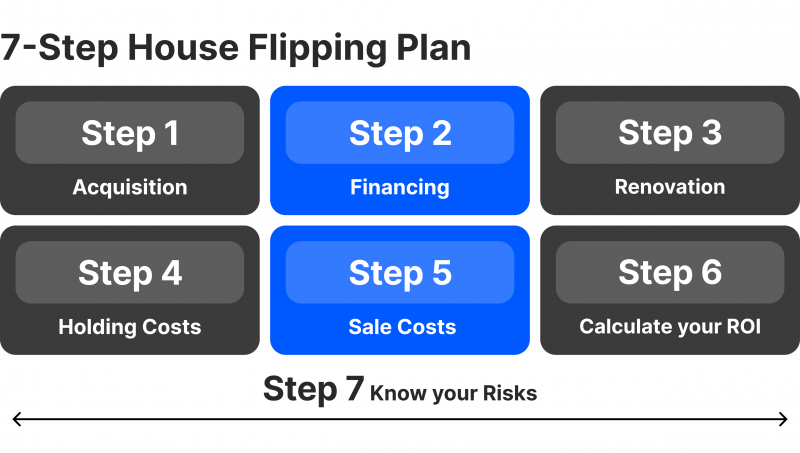
4. Commercial Property
Investing in commercial property means buying and renting a property for business use, such as offices, retail, industrial, leisure, and healthcare. This approach can potentially bring higher returns because tenants are typically companies and due to more significant spaces.
Moreover, commercial investments have more extended rental agreements, providing investors with long-term lease payments for up to five years and a low maintenance burden.

Advantages: Long-term stability; less management and maintenance; tax advantage.
Disadvantages: Higher financing requirements; dependency on the overall economy and market conditions.
5. Social Property
Social property consists of properties and residential complexes designed to accommodate low-income households and vulnerable families. Building and investing in social property is crucial as state council house shortages and socio-economic problems increase.
These residential properties offer low-price rental properties, which are tied to long-term lease contracts mediated by governmental agencies. This investment also has an ethical dimension in offering affordable living conditions and prices for families and individuals in need.
Advantages: Steady long-term returns; government support; increasing social demands; positive ethical and social impact.
Disadvantages: Changing regulationd; limited price appreciation; unexpected turnover and maintenance risks.
6. Real Estate Investment Trusts (REITs)
REITs are similar to mutual funds and money markets but for property investors. REITs are corporations with various property investments offered in secondary markets as shares.
Investors can buy shares in REITs and earn as prices grow in proportion to their investment. REIT providers offer opportunities in different categories and sectors with distinct growth rates and prices.
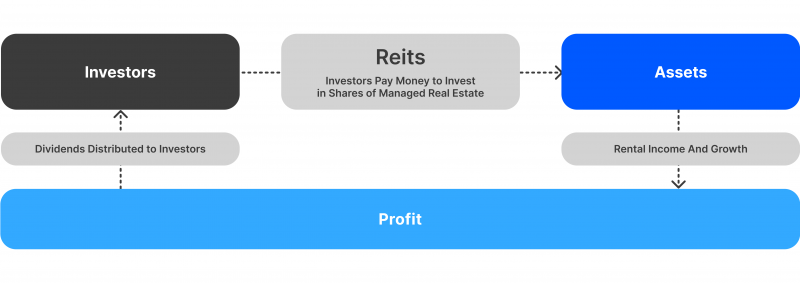
REIT investment is one of the most common low-risk strategies that offers access to property without actually owning it and worrying about its physical or value conditions.
Advantages: Portfolio diversification; receiving dividends; no corporate tax; less hassle about maintenance; tenants and lease contracts.
Disadvantages: Subject to interest rate changes; high management fees; liquidity issues.
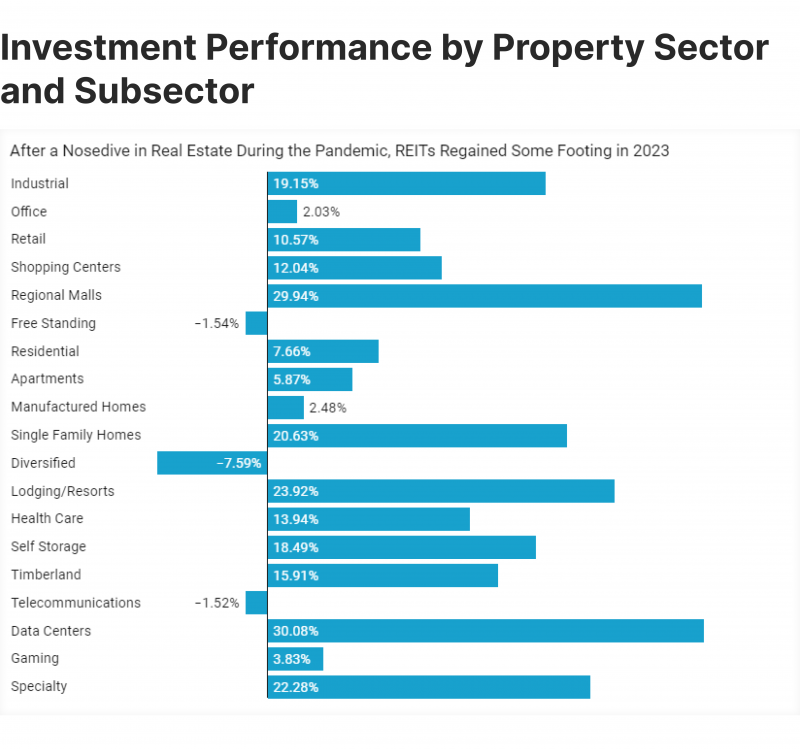
7. Purpose-Built Student Accommodation
PBSAs are properties designed to accommodate and serve students with private and shared areas and facilities that suit their needs. Investors can own and rent student housing units and dorms and gain from increasing demands, especially in areas populated with international university goers.
This trend is increasingly important in light of the increasing student housing problem in Europe, as the demand outs the supply offered by states.
Advantages: High demand; less tenant screening needed; high prices; governmental support.
Disadvantages: Seasonality; limited rental property appreciation.
8. Off-Plan Property
Off-plan property is the one in the planning or construction phase. These units are usually low-priced and offer a significant return on investment for many years.
Investors must be careful when investing in in-construction properties to identify the ones with the highest potential in terms of location, facilities, future value and urban planning. Moreover, estate projects can face economic turmoils that affect delivery and profitability.
Advantages: below-market price; high demand; substantial capital appreciation potential; fixed payment plans.
Disadvantages: high delay or suspension risks; longer times needed to realise gains.
9. Property Crowdfunding
Crowdfunding in property investment means gathering multiple investors who put their money in one pool, which is invested in property through a crowdfunding platform.
The pooled money could be from a community of investors who know each other or remotely displaced investors who invest through an online property crowdfunding platform.
The mediator (platform) controls how the funds are invested and manages the property in the most suitable way to grow the initial investment. Each participant receives profits based on their contribution.
Advantages: No property maintenance and management; low entry barriers; cost efficiency.
Discover the Tools That Power 500+ Brokerages
Explore our complete ecosystem — from liquidity to CRM to trading infrastructure.
Disadvantages: Limited control over assets; speculative growth potential; dependence on platform performance.

10. House Hacking
House hacking is a contemporary tactic to live and invest in a property while reducing mortgage payments. Using house hacking, an investor buys a house, lives in a part of it and puts the other parts for rent.
This way, the investor utilises the house space efficiently by owning their personal household space and receiving rent payments that cover part of the mortgage loan.
House hacking is more efficiently done in ample housing units or duplexes where the owner and the tenant live comfortably. Over time, investors can deploy real estate investment exit strategies like renting or selling the entire house if its value is significantly appreciated.
Advantages: Stable cash flow; better financing deals; reducing mortgage payments; access to tenant screening.
Disadvantages: High maintenance burden; limited privacy.
How to Manage Your Real Estate Investment?
Owning a property business is a straightforward approach. However, the challenge is to find the right potential that can grow your money over the years. You can either use the hands-on approach or work with a broker.
Direct Involvement
One way for professional investors to manage their portfolios and funds is by personally looking for and investing in properties. This approach requires connections with industry professionals and a network of leading firms and consultants.
Additionally, direct investment eliminates the need for intermediates who charge additional management and service fees.
However, an investor must acquire very advanced knowledge and experience in locating market opportunities and trends to find lucrative opportunities.
Through Brokerage
The other way to invest in property is by finding a brokerage firm that suits your needs and requirements. A broker offers broad market knowledge and insights that aid your decision-making process, ensuring you invest in the most profitable assets.
However, the agent commission can highly affect your profitability. Property brokers usually charge a percentage of your initial investment, which incentivises them to offer only high-cost investments.
Conclusion
Real estate provides stable returns from investing in long-term assets. Residential and commercial properties are known for longevity and appreciation over time. However, you must carefully consider your real estate investment strategies and execute what suits your budget and requirements.
You can find a bunch of property investment strategies, including low-risk, low-cost/high-return, short-term and long-term opportunities to grow your money and diversify your portfolio.
FAQ
What is the best real estate investment strategy for beginners?
Investing in REIT is the best way for new investors to gain from the property market. REIT investment entails owning shares in corporations that own and develop estate. This is a better approach for beginners to avoid dealing with housing conditions, maintenance and tenants.
What is the most profitable type of estate investment?
Commercial property investments offer the highest yields due to their larger spaces and long lease contracts. Commercial properties are offered to businesses like retailers, stores, warehouses, showrooms and offices for many years.
Is real estate investing better than financial markets?
It depends on your goal and budget. Investing in property requires high initial investment and offers long-term returns over many years. It is worth noting that some assets start to generate income only a few years after the initial investment.








